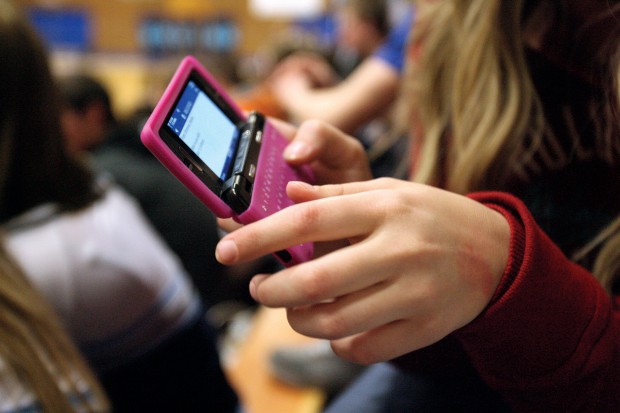

As a mom and a self-defense teacher, the concept of keeping our kids safe in the online world has always been interesting but somewhat perplexing. Here are some pointers and resources I have compiled with help from friends, folks who work with kids or with Internet security, and from various organizations. The list is a work in progress. Please add your comments and share this article so we can spread the word and continue to learn from one another as the conversation continues!
Across the board, advice is to keep talking! Keep the avenues of communication flowing between yourself and your kids. Know what they are up to. Share your concerns openly and honestly and educate them to think twice and make safe and smart choices. Focus on supporting them in their growing independence, guiding them through the rough spots, and make hard and fast rules as needed. And, of course, limit the time they spend online. Encourage their active engagement with real people in face-to-face settings.
Following the list are some links to resources you might find useful, handy or interesting. Some of these bullet points are posed as suggestions, others as questions you might want to think through together.
- Internet (iTouch/phone/laptop) allowed only in common areas of the house. Phones plugged in at night in the kitchen.
- Don’t post your personal info anywhere: address, phone number, where you are going to be, when you are leaving town… Don’t post a photo of your learner’s permit or driver’s license no matter how proud you are of it! If you absolutely have to fill in a form or post some personal information online, clear it with your adults.
- Lock down the various privacy settings on all social media accounts.
- What about people you don’t know or your family doesn’t know in the real world? People who want to friend or follow you? Is that OK? (probably not!)
- Text/Social media gone awry: when kids notice feelings building, feelings of hurt, anger, frustration, teach them to STOP. The tone of text and email can be very easily misunderstood. These misunderstandings can escalate. STOP. Bring in your adult. Ask for help with this. Go in person/face to face and make it right.
- Parents are friended on FB, follow you on Instagram, see what you’re reading on Tumblr, what you’re responding to on ASK, see who you are interacting with on KIK, etc. Parents have the passwords. If you can’t say it to your parent’s face, don’t post it. Watch for sexually explicit language and hateful language. Be cautious and don’t engage in any give and take that doesn’t feel right. Trust your gut.
- Don’t blindly trust that who and what people say they are online is TRUE. Creepy people can create online profiles that look perfectly safe. But their intent is to get closer to you, get personal information, get photos of you, worst case scenario, meet up with you. Basic rule of thumb: if you don’t know them in the real world, if they aren’t a friend of your family, don’t friend or follow them, or let them follow you.
- Images: Instagram, Snapchat, Pintrest, etc. If you can’t show your grandma or your dad, don’t share it. Everything you post online lasts FOREVER! Future employers, mentors, college admissions officers and the law will all be able to see your online life/digital footprint for all time. Think ahead!
- Take the location services off of your photos so that when you post images, they don’t announce to the world where you are.
- What about following links or requests to redirect you to another site? …they could lead to viruses at best, or fishing scams or porn sites. Once you get an image in your brain, it is there forever. It can’t be unseen.
- No sexting. Period.
- Video chats? With whom? Remember that when you facetime or video chat with someone, there might be someone listening in that you don’t know about. A third party may be in the room. Be sure of your privacy and watch what you say.
- Cyberbullying: If you see something hurtful, say something to an adult. Stop the dialogue, don’t engage. Get help right away.
- As in all things. Be smart. Make good choices. Think before you hit “send” or “post” or “like”. If you aren’t sure, don’t do it. Ask first. There are Internet predators, human traffickers, perverts and creeps out there. There are so many unknowns in the online world, and so many things that are not in our own control, it’s imperative to have good awareness around all the decisions you make.
- Keep up an active offline life! Keep the face-to-face relationships going. Sports, activities, musical instruments, art projects…
- Take self-defense classes, train martial arts! The physical skills that are learned on the training floor help build confidence. The lessons and strategies we learn about protecting ourselves translate or “generalize” from the floor into our everyday lives.
- Where kids go online to interact is constantly changing as new Apps, sites and possibilities are developed. Keep engaged with your kids and learn about what they are up to.
- HOMEWORK: Concretize your rules at home. Take time to make an agreement with one another if you haven’t already. If you already have an agreement, revisit it, keep talking!
 A Few Resources:
A Few Resources:
- Phineas and Ferb Rules of the Cyberspace Road Public Service Announcement
- The National Center for Missing and Exploited Children has developed an online safety guide for kids and parents they call NetSmartz for kids. There’s also aNetSmartz for parents.
- Click Here to access registration for and information about our upcoming self-defense classes.
- Portlanders, we are very lucky. We have three Tulen schools in our city. If you live in North, Northeast or Southeast Portland, find your nearest self defense classes here.
- Listen to this 7-minute NPR story (LINK) by my teammate about why she teaches kids to fight. In the story, they say she trains Karate, but now, as an insider, you know that what she’s really teaching them is Poekoelan Tjimindie Tulen.


